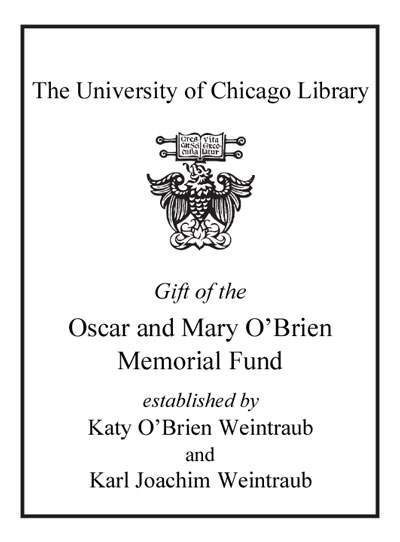Those who count : expert practices of Roma classification /
Saved in:
| Author / Creator: | Surdu, Mihai, author. |
|---|---|
| Imprint: | Budapest ; New York : Central European University Press, 2016. ©2016 |
| Description: | xv, 276 pages ; 24 cm |
| Language: | English |
| Subject: | |
| Format: | Print Book |
| URL for this record: | http://pi.lib.uchicago.edu/1001/cat/bib/11004624 |
Table of Contents:
- Acknowledgments
- Introduction
- Chapter 1. Epistemic and Political Classifications
- 1. Classifications That Matter
- Strengthening the object of study
- Static and Variable in Roma classifications
- 2. Scientific Interests and Political Relevance ...
- The political economy of knowledge production
- 3. From Expert to Self-Ascription
- Chapter 2. Ethnicity Theories and Research Practices
- 1. Constructivist Theories VS. Essentialist Practices
- Ethnicity as a fiction made by science
- The entrepreneurial side of ethnicity
- Ethnicity as an artificial boundary
- Ethnicity as an uncritical circulated category
- 2. Roma Ethnicity Measurement in Sociological Surveys
- How Roma representative samples are made
- Framing questions and interpreting findings in Roma-related surveys
- Chapter 3. Disciplinary Traditions in the Study of Roma
- 1. From Police Profiling to Policy Research Profiles
- 2. Anthropological, Historical, and Linguistic Accounts of Roma
- Linguistics and historiography of Roma
- Social history on Roma minoritization and stigmatization
- Anthropological views on Roma origin: Exoticization and irrelevance
- 3. Roma Identity Between Activism and Politics ...
- 4. Studies on Roma Discrimination
- Chapter 4. Ethnicity Inscriptions in Censuses and Surveys
- 1. The Census in Racial Policy Regimes
- The Census in Nazi Germany
- The Census in apartheid South Africa
- 2. Ethnicity Inscription in Modern Censuses
- Governmental practices of recording ethnicity in censuses
- The Census as a tool of governance
- Resistance to census categorization
- 3. From Fiscal to Ethnic Categories and Further On to 'Ethnic Unavailable'
- Gypsies as a social and fiscal category
- Gypsies as an undercounted census category
- Roma as an unavailable ethnic category
- 4. Problematic Consensus on the Roma Undercount in Censuses
- 5. Representative Surveys Samples Built On Unrepresentative Census Data
- Chapter 5. Influencers of Academic and Expert Discourse About Roma
- 1. A Bibliometric Approach
- 2. Institutionalization of Roma Category in Academic Discourse
- 3. Disentangling Influence
- 4. Who is Who in Expert Discourse About Roma
- Chapter 6. Case Studies on Roma-Related Discourse
- 1. Recycling Frames in World Bank Publications (Case Study 1)
- Cultural frames
- Repetitio est mater studiourum
- Selectivity of sources and assembling evidence in Roma-related research
- 2. Roma Welfare Dependency: How Representations Are Created and Dismantled (Case Study 2)
- Unmaking public opinion
- 3. Genetic Studies: Interest in Roma Origin(S) and Mobility (Case Study 3)
- Endogamy as a master narrative frame in Roma-related genetic papers
- The unbearable generalization: From convenience samples to Roma population
- Roma as subjects of medical genetic research
- 4. "The Sun is a Gypsy Stove" (Case Study 4)
- Chapter 7. Visual Depictions of Roma in Expert Publications
- 1. Reading Photography: Pretext, Text, and Context
- Selection of photographs for analysis
- 2. Roma Images in Policy Literature
- Roma girl writing in a schoolbook
- Children by the garbage dumpsite
- The smoking Roma
- 3. The Untold Roma Story or the Repressed Normalcy
- Conclusions
- Bibliography
- Index

